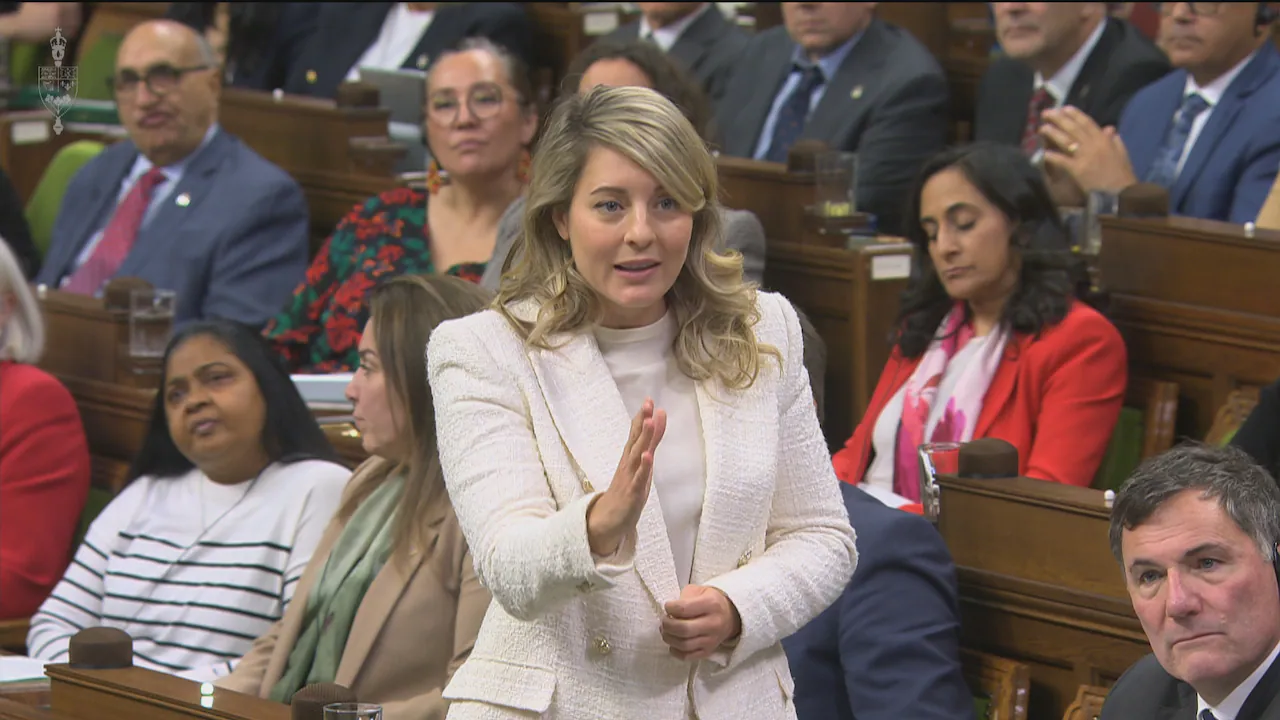Copyright cbc

Confidential government deals worth billions of dollars to help fund a Stellantis-backed electric vehicle battery plant in Windsor, Ont., carry dozens of conditions that, if violated, give federal officials the power to end the agreements and even force repayment in some cases, according to copies obtained by CBC Windsor. It is unclear, however, if the contracts contain guarantees related to the company’s broader footprint in Canada, as elected officials have claimed. Some portions of the documents are redacted, so the full terms of the agreements are unknown. The federal government and NextStar did not respond to questions before publication time. The content of the previously unpublished contracts has come under intense scrutiny in Parliament following global automaker Stellantis’ announcement that it will shift production of a Jeep model from Brampton, Ont., to Illinois, while also investing $13 billion in U.S. operations. Despite Stellantis’ assurances that it has “plans for Brampton,” the move has fueled fresh fears that the plant’s roughly 3,000 workers — most of whom have been laid off since 2023 so the facility could be re-tooled — could face permanent job losses, especially as U.S. tariffs continue to batter the Canadian auto sector. Federal officials have since stated that the government’s deals with the company include job protections — something the official opposition has repeatedly questioned and used to demand that the Liberal government release the contracts. CBC Windsor discovered copies of the battery plant agreements tucked within more than 150 pages of government records released by the Privy Council Office this past August as part of an access to information request. CBC Windsor obtained those records by making an informal request for the previously disclosed documents. The first deal, from 2022, is an agreement between the federal government and NextStar Energy, the company behind the battery facility, to provide up to $500 million of taxpayer support through what’s known as the Strategic Innovation Fund (SIF). NextStar is a joint venture between Stellantis and Seoul-based battery giant LG Energy Solution, and the project in Canada’s automotive capital broke ground that same year. Both Stellantis and LG are parties to the agreement and listed as guarantors. The second deal, signed in 2023, is a Special Contribution Agreement between NextStar and the federal government to provide up to $15 billion in production subsidies — one third of which will be paid by the province. That deal came after NextStar halted construction on the factory in Windsor to secure more public funding. The government had just struck a $13-billion deal with Volkswagen for another battery plant in Ontario, and the U.S. government had introduced substantive incentives for companies that set up EV operations south of the border. What the government has said about the deals In a July 2023 statement, federal and provincial officials said the production subsidy deal included “a number of conditions,” one of which was that “Stellantis will uphold its existing commitments in Canada and Ontario, including a production mandate at its plant in Brampton, Ontario.” More recently, Industry Minister Mélanie Joly has alluded to such a condition in the NextStar deals and raised the possibility of legal action against Stellantis. “Stellantis agreed with the Government of Canada and the Province of Ontario to maintain its full Canadian footprint, including Brampton, in exchange for substantial financial support,” Joly wrote in a letter to the company’s CEO. “Anything short of fulfilling that commitment will be considered as default under our agreements,” she wrote. “In particular, the legally binding commitments that Stellantis made by accepting support through both the Strategic Innovation Fund and through the Special Contribution Agreement with NextStar Energy must be respected.” When asked about the deals with NextStar, a spokesperson for Premier Doug Ford said Ontario has its “own contracts in place with strong guardrails.” The spokesperson declined to say how much the province has paid out to NextStar so far. Deals include range of conditions The initial federal deal from 2022 includes multiple conditions, including that NextStar hire 2,500 full-time employees within one year of the project’s completion date — and maintain that number throughout the duration of the deal. In the next year’s deal, the language appears less stringent, with NextStar acknowledging "that it intends to use commercially reasonable efforts to satisfy its obligations” related to the job creation condition in the previous contract. But there is no mention of Brampton, at least in the unredacted text. Though the province has described the production subsidies as tax breaks, the federal contract indicates they’re cash payments. “Notwithstanding the foregoing, the Parties acknowledge and agree that the [U.S. subsidies] are structured as a tax credit with an option to elect a cash payment, while the Contribution payments under this Agreement are structured as a cash payment only,” the document says. Both deals list dozens of situations that would constitute an “Event of Default,” as well as detailed resolution processes that, if unsuccessful, can result in the minister terminating the contracts. Contract provisions include requirements around maintaining accounting records, encouraging suppliers to set up shop in Canada, and obtaining the minister’s consent before a change in control of the company’s ownership. Other conditions in the federal contracts require NextStar to “maintain ownership and ongoing operations” of the plant in Windsor during the length of the deal, which is redacted, and spend an undisclosed amount on capital expenditures in Canada. The SIF deal says the minister may “require the Recipient to repay to the Minister all or part of the Contribution paid by the Minister, together with interest from the day of demand at the Interest Rate,” if there’s a default. The production subsidy deal, meanwhile, says contract termination does not require NextStar to repay the money it got before the termination, unless the minister declares those payments ineligible. Unclear how much government has spent so far The federal government has previously declined to reveal exactly how much it has given NextStar to date, but as of last year, it had doled out $268 million of the $500 million in SIF funding, per public accounts. Finance Minister François-Philippe Champagne, who held Joly’s position at the time the deals were inked, has suggested the government could try to recover money given under deals with Stellantis, however. “We’re going to enforce our contractual rights, definitely,” Champagne said last week. It’s unclear if he was referring to the battery plant deals or a separate agreement the government struck with Stellantis to help fund re-tooling at both existing Brampton and Windsor assembly plants, though. In any case, it isn’t the first time the government’s contracts with Stellantis have been in the spotlight. In 2023, when controversy erupted over the use of foreign workers at the Windsor battery plant, a House committee requested copies of the deals to examine their conditions. The redacted copies obtained by CBC Windsor appear to be the documents the House committee was given in response to that request. More recently, another House committee has also demanded copies of the agreements, and gave the government two weeks to provide them. Read the NextStar contracts below



